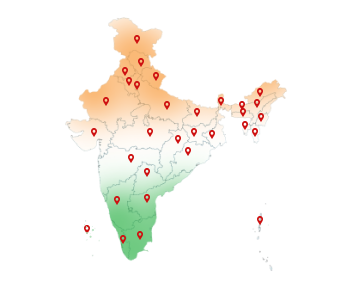08-Feb-2024
Digital Signature For e-Ticketing: Secure Online Transaction
In the Indian Railway system, officials managing tourism, catering, and electronic ticketing must use the digital signature for e-ticketing. Each licensed official needs a Class 3 DSC for security. After obtaining the DSC for IRCTC, they register it through a principal officer. This ensures proper authentication and compliance with regulations, enhancing online ticketing security and maintaining passenger trust in the railway system.
How Do Digital Signatures Help with E-Ticketing?
Protecting Your Ticket -
Imagine your train ticket is like a digital file. A digital signature is like a special lock that keeps it safe from being changed by anyone else.
It ensures that the ticket you book online stays the same from the time you book it to when you use it.
Making Sure It's Really You -
When you book a ticket online, the system needs to be sure it's you doing it, not someone pretending to be you.
Digital signatures for ticket booking are like your online ID card. They prove that it's you booking the ticket and not someone else using your name.
Why Do Digital Signatures Matter for E-Ticketing?
Trust and Security:
Just like you trust a real signature on a paper document, a digital signature for e-ticketing
give you trust in online transactions.
They ensure that your ticket is genuine and hasn't been tampered with by hackers or fraudsters.
Legal Recognition:
Digital signatures are recognized by the law as valid and binding, just like physical signatures.
This means that if there's ever a dispute about your ticket, your digital signature can prove that you booked it and agreed to the terms.
Registration Process
The registration process typically includes the following steps -
a. Application Submission: Officials submit their applications along with necessary identification documents to the CA.
b. Verification: The CA verifies the identity of the applicant by cross-checking the submitted documents.
c. Issuance of DSC: Once the verification is successful, the CA issues a Class 3 Digital Signature Certificate to the individual. This certificate includes the individual's public key, personal details, and the digital signature.
d. Principal Officer's Role: The obtained class 3 digital signature for e-ticketing agents is registered through a principal officer, who ensures proper authentication and compliance with regulations. This step enhances the overall security of the digital signature implementation in the Indian Railway system.
Implementation of Digital Signature for E-Ticketing
1. Key Components
Public Key Infrastructure (PKI): Digital signatures rely on PKI, which comprises certificate authorities, registration authorities, and users' public and private key pairs.
Certificate Authority (CA): CA issues digital certificates to entities, validating their identities and binding them to public keys.
Secure Hash Algorithms: Digital signatures use secure hash algorithms like SHA-256 to generate unique hash values for documents, ensuring data integrity.
2. Integration with E-Ticketing Platforms
E-ticketing platforms like IRCTC integrate digital signature functionality within their systems, enabling users and agents to sign electronic documents securely.
Agent and user typically generate their class 3 digital signature for e-ticketing from trusted CAs, ensuring the authenticity of their signatures.
Which type of Digital Signature is Required for e-ticketing?
For e-ticketing purposes, an authorized representative must possess a Class 3 DSC. This certificate is issued in the name of the individual who will be conducting e-ticketing transactions.
To obtain your personalized Digital Signature Certificate for e-ticketing, you can reach out to our technical support experts. They will guide you through the process and ensure that you have the necessary certificate to perform e-ticketing transactions securely and efficiently.
Sum Up
Digital signature for e-ticketing serves as a cornerstone in ensuring the authenticity of electronic documents, providing passengers with peace of mind regarding the legitimacy of their tickets and transactions. As technology evolves, continued emphasis on adherence to best practices, user education, and collaboration with regulatory authorities will further fortify the e-ticketing infrastructure, reinforcing its resilience against emerging threats and enhancing the overall passenger experience within the Indian Railway system.


